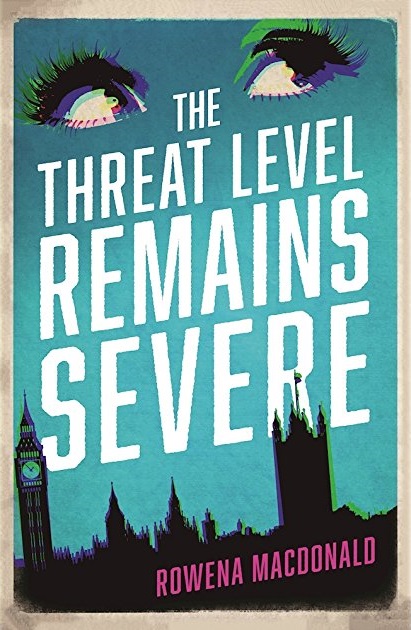You have no items in your cart. Want to get some nice things?
Go shoppingA brilliantly observed examination of choices and consequences, of why we act as we do and of just how similar we all are.
Never judge a book by its cover – or its title. When I was first asked to review Rowena Macdonald’s latest novel I assumed from the title that it would be some kind of political thriller. Instead, it focuses on the coming together of three lives in Parliament – the politics are, by and large, incidental. Grace Ambrose works in an admin role in the House of Commons. Just turned thirty, she’s doesn’t have a plan – she’s living one day to the next, in a role she finds tedious at best and with co-workers she wouldn’t ordinarily choose to spend time with. Enter, Brett Beamish. Late-twenties. Australian. Good-looking. Going places. With the parliamentary setting, the story also gives a nice behind the scenes look at the workings of the House of Commons and, in particular, the admin teams who support the various legislative committees. On the one hand, though, this sounds like clichéd chick-lit, a Bridget Jones-esque love story. While initially bumping up against each other due to personality differences, there’s a certain tension between them which, the reader suspects, can only be resolved one way. Add to that how Grace suddenly starts getting emails from an unknown admirer and you have all the ingredients for a clichéd three-way love triangle.
Except, about halfway through, the story things turn on their head. What was a regular love story becomes an examination of jealousy and obsessiveness, of the notion that we’re all more alike that we care to admit. Evil people aren’t always being evil, there’s always an explanation for people acting how they do. Whether this is a story of redemption is for the reader to decide, but it’s certainly a story of the messy, complicated lives we lead and honesty’s ability to make our lives easier, if only we’d care to embrace that trait more.
Macdonald’s examination of the two main male characters is wonderful, using alternating point of view to show how those who appear different to everyone else can be just as selfish, just as self-centred – and just as sure of their own righteousness. Beamish and Swift, for example, appear to be chalk and cheese. One is tall, handsome, apparently destined for great things. The other short, average, passed over for promotion and stuck in what seems to be a dead-end job. Winner v loser, it would seem. And yet both are convinced of their own intelligence, each going so far as to believe that only those they consider intelligent enough should be allowed on juries. Each is convinced the other is an idiot. In spite of their contradictions, Macdonald does a wonderful job in portraying both as victims of their own peculiar circumstances and in showing that people usually have reasons for how they behave, whether such behaviour is good or bad. To say any more on this point would be to give part of the story away, but the examination of cause and effect is excellent.
There’s an argument that Beamish and Swift are male stereotypes, either alpha male or bitter loser. Each character is fleshed out sufficiently well, though, that the stereotypes are at least engaging. Perhaps the biggest criticism here comes in relation to Grace Ambrose herself. She’s very ordinary, very run of the mill. Works her day job without any particular sense of enthusiasm or disdain. Has quite strong political views. Is obviously smart and well educated. In spite of this, she comes across as a little … boring? On reflection – and I finished Threat Level about three days before writing this – I wonder if she’s actually very passive throughout the book. Things happen to her and, aside from googling to find out details of various love interests, she doesn’t actually drive very much at all. Having said that, perhaps the fact that I find myself wishing she was more assertive in the story is a sign of how much Macdonald makes the reader care about her.
In any event – still waters, as they say. The Threat Level Remains Severe is a book definitely worthy of a second read. Macdonald’s exploration of human motivation and interaction makes for a wonderful novel that reminds that we’re none of us islands, that we’re never as good – or as inexcusably bad – as we might think.
The Threat Level Remains Severe is published by Aardvark Bureau.
About Fran Mulhern
Fran Mulhern is an Irish writer from Belfast and Associate Editor at Short Fiction Journal. With an MA in Creative Writing from Lancaster University, his fiction and poetry has appeared in The Honest Ulsterman and A New Ulster. His non-fiction has been published on the BBC website, and in The Belfast Telegraph and The Irish Times. His biggest fan is Daisy, his small white fluffy Maltese dog. He takes way too many pictures of her.





